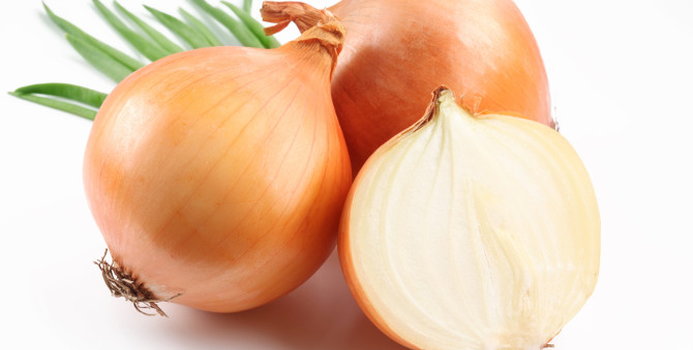Onions can be found in the kitchen of just about every devoted cook. They complete the taste of many dishes. Onions will not only enhance your cooking, they offer a number of health benefits.
Types of Onions
Onions come in different colors, sizes and tastes. There are two types of onions. One is the large, round type referred to as spring/summer onions. As the name suggests, these onions are grown in warm weather. These are the Maui Sweet onion, Vidalia and Walla Walla. They have a sweet or mild taste.
The other type of onion is referred to as the storage onion. These onions grow in colder climates with a flavor that is more pungent. They are called the red, white or yellow onion. Spanish onions are one form of storage onion.
Other variations include the green onion, scallions and pearl onions. As a general note, if you are concerned with health benefits, the more pungent the onion, the greater the health benefit.
Onion Nutrition
Onions are notorious for their fragrance. They are rich in compounds containing sulfur, which create the pungent smell. Onions are rich in the following nutrients:
- Rich in sulfuric compounds
- An excellent source of chromium
- High in vitamin C
- A good source of dietary fiber
- High in vitamin B6
- Rich in a number of flavonoids
The Health Benefits of Onions
Onions help to prevent a large number of health conditions. The chromium in onions works to improve the cell's response to insulin. Studies of diabetics show that onions lower insulin levels and improve tolerance for glucose.
The combination of sulfuric compounds, chromium and vitamin B6 work together to lower blood pressure, prevent atherosclerosis and heart disease. Onions help to reduce the risk of stroke and heart attacks. They also help to lower bad cholesterol and raise good HDL-cholesterol.
Studies have shown that regular consumption of onions helps to greatly lower the risk of several common cancers. Consuming onions twice a week or more reduces colon cancer risk. Consider adding onions to meats when cooking to lower the degree of toxins produced when cooking meat at very high temperatures.
Onions also help in the maintenance of healthy bones. They are especially helpful for women who are at greater risk for osteoporosis during menopause.
Additionally, onions reduce inflammation. Vitamin C, Quercitin and other flavonoids also work together to kill bacteria. This is a good reason to add onions to stews and soups during flu and cold season.
Selecting Onions
- Select onions that are clean and not open at the neck. Look for crisp and dry skins.
- Avoid onions that look moldy, have soft spots, dark patches or appear to be sprouting.
- Conventional onions undergo irradiation. Buy organic if you want to avoid this.
Storing Onions
- Store onions at room temperature, in good ventilation and in a dark space.
- Onions should not be stored with potatoes because they pick up their moisture and lead to faster decay.
- Store cut onions in plastic bags in the refrigerator and eat them within two days; they lose their nutrition quickly due to oxidization.
- Store cooked onions in a non-metal container in the refrigerator.



